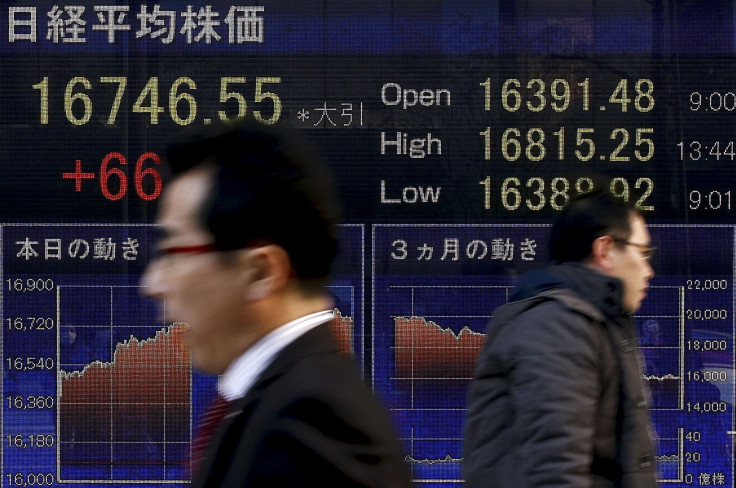Asian Stocks Fall Ahead Of Japan Budget, US Fed Chairwoman Speech

After closing higher Monday, Japanese stocks began Tuesday with a poor performance as the benchmark Nikkei 225 index remained in negative territory all through morning trade, and was about 0.3 percent lower when traders broke for lunch. About half hour before close of trade, the index was about 0.4 percent lower.
The Japanese parliament’s upper house is meeting later Tuesday to debate the national budget for financial year 2016, widely expected to be passed, given the majority of the ruling bloc. The record 96.72 trillion yen ($851.5 billion) budget needs to be the balancing act between managing a heavy debt and boosting a frail economic recovery.
Prime Minister Shinzo Abe is also widely expected to announce a hike in the country’s sales tax to 10 percent from the current 8 percent, scheduled to take effect from April 2017. The tax hike was originally planned for October 2015 but was delayed due to the economy being in recession. Given the fragile economic recovery, there is speculation Abe might delay raising the tax beyond April next year.
However, the Japanese Economy Minister Nobuteru Ishihara told reporters Tuesday: “The prime minister will decide whether to increase the sales tax examining the economic conditions as long as there are no accidents such as a major earthquake,” Reuters reported.
In other indicators for the Asia’s second-largest economy, data released Monday showed that household spending — which accounts for over half of the country’s gross domestic product — was up 1.2 percent in February from a year ago. February retail sales also improved by 0.5 percent from 12 months ago, while unemployment rose slightly to 3.3 percent from 3.2 percent in January. Industrial production data for February, to be announced Tuesday, is expected to fall by as much as 6 percent over January, according to consensus estimates by both Reuters and the Wall Street Journal.
Chinese stock markets also traded in negative territory Tuesday morning, edging lower as trade progressed. The Shanghai Composite and Shenzhen Composite indexes were trading 0.75 percent and 1.16 percent lower, respectively, in post-lunch trade, while the Nasdaq-style ChiNext Index was down by 1.27 percent. Offshore, the Hang Seng Index in Hong Kong was faring better, trading in positive territory briefly and only 0.02 percent lower in post-lunch trade.
Australian markets, closed Monday on account of Easter, plunged into negative territory soon after opening Tuesday and the S&P/ASX 200 Index fell by over 1.5 percent. The Straits Times Index in Singapore followed a similar graph but was faring better, having lost about 0.3 percent by early afternoon.
India’s S&P BSE Sensex started in positive territory but was about 0.5 percent down in morning trade. Meanwhile, South Korea’s Kospi Index was the only regional benchmark to stay firmly in the green, despite coming off the day’s highs. It was trading about 0.6 percent higher close to end of trade.
Investors around the globe will closely watch for clues to interest rate movements in the United States as Federal Reserve Chairwoman Janet Yellen is scheduled to speak Tuesday at an event in New York.
© Copyright IBTimes 2025. All rights reserved.





















